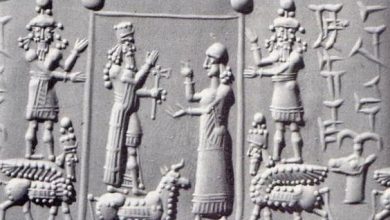The Lost City of Atlantis, a sunken metropolis shrouded in mystery and allure, has captivated the imaginations of humankind for centuries. Its existence remains a tantalizing enigma, a siren’s call to adventurers, scholars, and dreamers alike. First mentioned in the writings of the ancient Greek philosopher Plato, Atlantis was described as an island kingdom of unparalleled beauty, wealth, and advanced civilization. Its inhabitants, according to Plato, were a noble and benevolent people, living in harmony with nature and possessing mastery over technology far beyond their time.
Plato’s account of Atlantis is primarily found in two of his dialogues, the Timaeus and the Critias. In the Timaeus, he describes the city’s geography and its concentric rings of canals and walls, while in the Critias, he delves into the history and culture of the Atlanteans. Plato’s depiction of Atlantis is a utopian vision, a society free from corruption and strife, where knowledge and virtue reigned supreme.
The sudden and catastrophic destruction of Atlantis, as recounted by Plato, is a cautionary tale about the hubris of humanity. The Atlanteans, once a model civilization, succumbed to internal discord and moral decay, ultimately leading to their downfall. Plato’s narrative has been interpreted in various ways, with some seeing it as a historical account, while others view it as a philosophical allegory.
Despite the lack of concrete evidence, the allure of Atlantis remains undimmed. Over the centuries, countless expeditions have been undertaken in search of the lost city, from the depths of the Mediterranean Sea to the remote corners of the globe. While no definitive proof of Atlantis’ existence has been found, the quest continues, driven by the enduring fascination with this mythical realm.
Theories of Atlantis’ Location
Theories abound about the possible location of Atlantis, with over 2,000 potential sites proposed across the globe. Some of the most prominent theories include:
The Mediterranean Sea: The most widely accepted theory places Atlantis within the Mediterranean Sea, with Santorini, a Greek island that suffered a massive volcanic eruption around 1600 BCE, being a popular candidate.
- The Azores: This archipelago in the mid-Atlantic Ocean has also been proposed as a potential location for Atlantis, with proponents citing its underwater topography and volcanic history as supporting evidence.
- Antarctica: A more controversial theory suggests that Atlantis was once located in Antarctica, but was submerged due to ice melting and shifting tectonic plates.
- The Bahamas: Some researchers believe that the Bimini Road, an underwater rock formation off the coast of Bimini, could be remnants of Atlantean structures.
- The Black Sea: This theory proposes that the Black Sea was once a freshwater lake, but a sudden influx of seawater flooded the area, engulfing the city of Atlantis.
The Enduring Legacy of Atlantis
The Lost City of Atlantis continues to inspire and captivate, its story woven into literature, art, and popular culture. From Jules Verne’s “Twenty Thousand Leagues Under the Sea” to Disney’s “Atlantis: The Lost Empire,” the myth of Atlantis has taken on various forms, each adding to its enduring legacy.
Whether Atlantis is a figment of Plato’s imagination or a lost chapter of human history, its allure remains undeniable. The mystery surrounding its existence continues to fuel our curiosity and imagination, reminding us of the vastness and wonder of the world around us. The quest for Atlantis may never be fully resolved, but the journey itself is a testament to the enduring power of myth and the human spirit’s insatiable desire to unravel the mysteries of the past.





